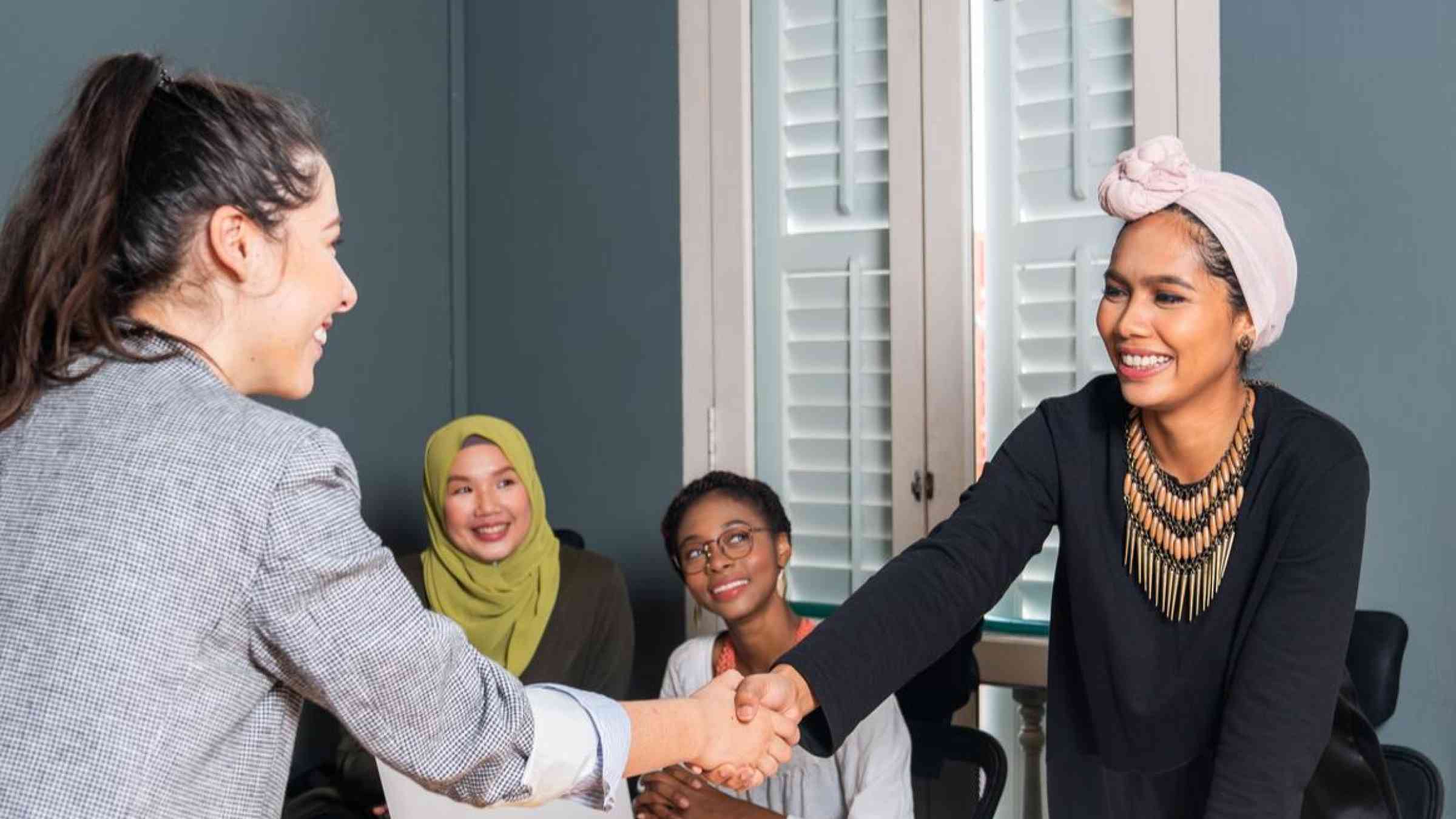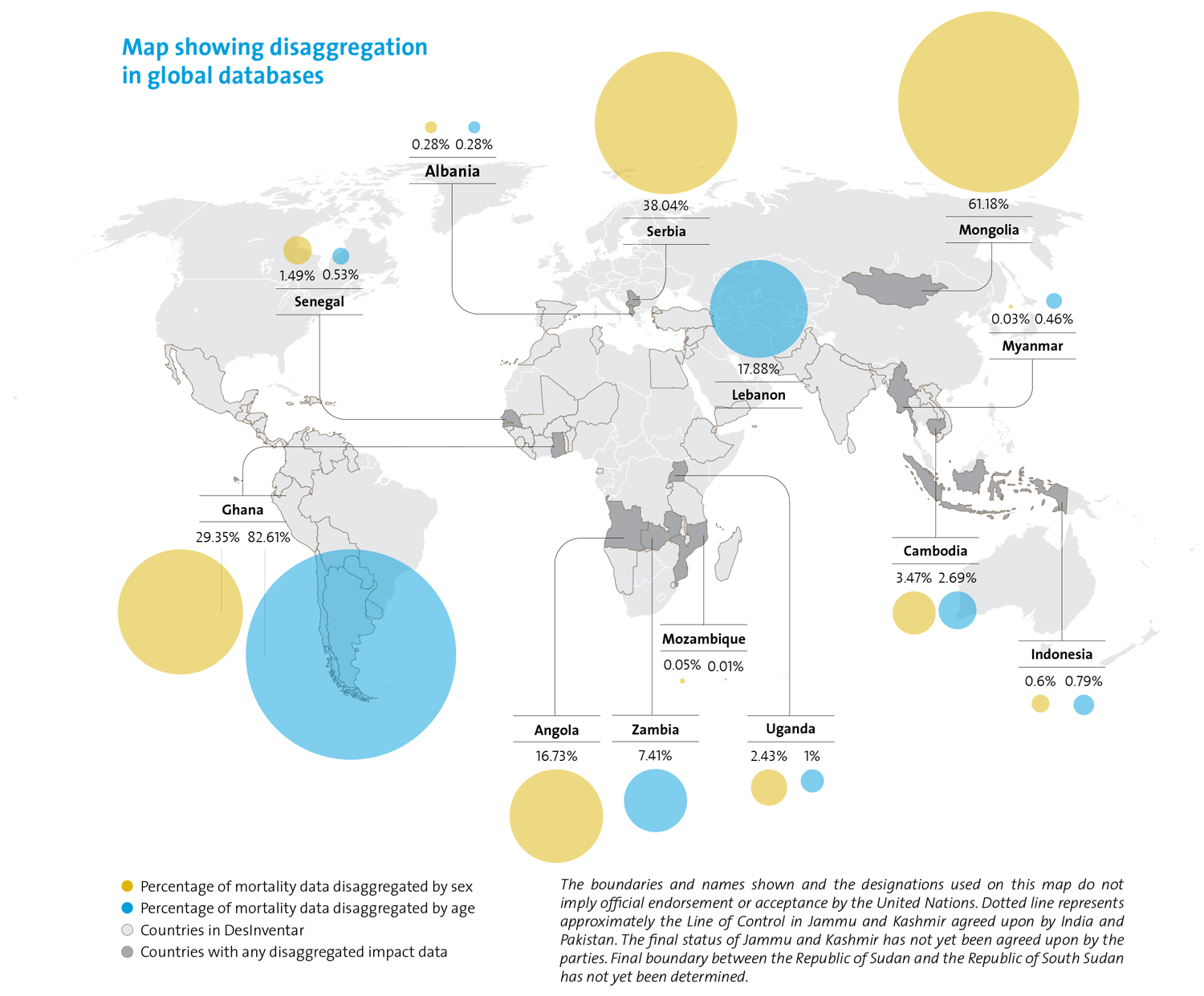Gender and age inequality in the face of disaster risk

By Rahel Steinbach, Programme Specialist (DRR), UN Women and Martin Eklund, Programme Specialist (CERP) Section, UNICEF
The COVID-19 pandemic is a stark reminder of the way socio-economic inequalities and barriers affect vulnerability and exposure to disasters. Amongst these, gender and age are decisive factors influencing people’s ability to prevent, prepare for and recover from COVID-19 and its consequences.
The effectiveness, inclusiveness and sustainability of COVID-19 recovery will crucially depend on how gender and age considerations are reflected in the examination of potential impacts of and responses to COVID-19. Women and men, boys and girls all have different and essential roles to play on the path of COVID-19 recovery, and prevention and preparedness against future waves of the virus. Leveraging their potential and contributions effectively is a sine-qua-no for the whole-of-society resielience we aim to achieve.
UNICEF and UN Women have joined forces to support UN Member States and partners to implement the Sendai Framework in a gender and age responsive manner so that inequalities linked to disaster risk among vulnerable groups including women and children are addressed.
To shed a light on these inequalities and to assist policy makers to develop effective, intersectional approaches in disaster resilience, UNICEF and UN Women have conducted a study and developed a policy brief exploring the gender and age inequality of disaster risk. Global data on gender and age inequality was analysed and three case study countries, Nepal, Malawi and Dominica, were reviewed.
These case studies show how gender and age specific inequalities in a given context lead to differentiated impacts in numerous areas, including mortality, loss of housing and livelihoods and disrupted access to health and sanitation services. They also demonstrate that these inequalities generate longer-term impacts, including in access to education, gender-based violence, and the ability to rebuild and recover from disasters.
The study found that there are huge gaps in disaggregated quantitative data at the global level. The most vulnerable and marginalized groups are not visible in mainstream data since qualitative and quantitative data assumes that all people in a given category (women, children, men, elderly) have the same vulnerabilities. Mainstream data fails to take into account specific vulnerabilities within those groups (ex. children with disabilities, a woman with a disability heading a household), even though marginalized groups face higher barriers in accessing assistance and support due to factors such as discrimination, poor understanding of needs, exclusion and stigma.

The study underlines that an analysis based on disaggregated quantitative impact data is insufficient to understand and take action to reduce differential impact. The policy brief proposes a comprehensive 6-step approach to gender and age inequality informed data to provide a better understanding of differential risk. This 6-step approach includes an innovative “Missing Voices” initiative which promotes proactively considering experiences of marginalized individuals to better understand their issues in intersecting ways. This whole-of-society approach can be applied to improve targeting of preparedness and response measures, including for COVID-19.
Going forward, it is of paramount importance that national DRR strategies and COVID-19 response, prevention and preparedness plans address the specific needs, vulnerabilities, capacities and responsibilities of women and girls, men and boys, indigenous groups, persons with disabilities, and all those with a disproportionately higher disaster risk and exposure, while promoting their participation and leadership. For a sustainable, equitable and healthy future, these voices must be heard and taken into account in shaping priorities, investment and action.
Dr. Rahel Steinbach is an international development practitioner with expertise in disaster risk reduction, resilience, climate change, humanitarian action, gender equality and women’s empowerment. She is currently Programme Specialist on Disaster Risk Reduction and Humanitarian Action with UN Women.
For the past two decades, Rahel Steinbach has been working with multilateral and bilateral organizations, governments, civil society, academia and private sector entities in more than 120 countries with a holistic focus on socio-economic and sustainable development issues.
As an advocate for sustainable development and gender equality she has lectured at Oxford University, Vienna University, ISEG and the American Graduate School in Paris.
She holds a PhD in Sustainable Development from the University of Vienna, Austria, a Master’s degree in Political Science from Sciences Po, Aix-en-Provence, France and a Master of Advanced International Relations from the Diplomatic Academy in Vienna, Austria.
Editors' recommendations
- Systematization of webinar series on gender in all stages of disaster preparedness: From data collection to impact analysis
- Gender and qualitative interpretation of data
- More about coronavirus disease outbreak
- More about vulnerability in the age of COVID-19
- COVID-19: How DRR can help reduce elderly loneliness
- How to reduce gender violence during the pandemic and beyond